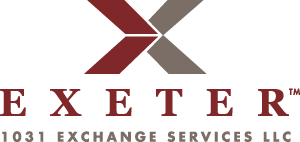Year-End Tax Planning When a 1031 Exchange Fails
Failed Tax-Deferred Exchange May Qualify for Installment Sale Treatment
Investors often ask what will happen to their 1031 exchange transaction if they sell their relinquished property and can’t identify and acquire suitable replacement property within the prescribed 1031 exchange deadlines. Unfortunately, their 1031 exchange has failed and will not qualify for tax deferred exchange treatment since they were not able to meet the reinvestment requirements. In short, their 1031 exchange is now a taxable sale.
However, investors do have some options.
Partial Tax-Deferred Benefits
Investors can complete a partial 1031 exchange. The investor can dispose of one or more relinquished properties and acquire one or more replacement properties as part of a single 1031 exchange transaction. If multiple replacement properties are involved in the same 1031 exchange transaction and not all the replacement properties are acquired, it may result in a partial 1031 exchange.
Partial 1031 exchange transactions mean the investor did not trade equal or up in value (i.e. they traded down in value) or they ended up with cash left over (i.e. cash boot) after completing their 1031 exchange. Partial 1031 exchange transactions are acceptable, do not hurt the investor’s 1031 exchange, but will be partially (or completely) taxable.
Investors should consult with their tax advisor to determine if a partial 1031 exchange will still defer enough taxable gain to justify the 1031 exchange. In many cases, a partial 1031 exchange will still defer a portion of the taxable gain, unless the investor trades too far down in value or pulls too much cash out of the transaction.
Installment Sale Treatment Under Section 453
In the case of a failed or partial 1031 exchange transaction, an investor may be able to defer their taxable gain into the following tax year rather than the tax year in which the sale of the relinquished property closed. The ability to defer the taxable gain into the following tax year will depend on when the investor has the right to receive their remaining 1031 exchange funds pursuant to the terms of the 1031 exchange agreement used by the qualified intermediary. If the investor’s right to receive their 1031 exchange funds lands in the following tax year, the taxable gain is likely deferred to the following tax year.
For example, if the sale of the relinquished property closes on December 1st of any taxable year, the 45-calendar day identification deadline and the 180-calendar day exchange period both land in the following tax year. If the 1031 exchange agreement has the appropriate restrictions preventing the investor from having access to their funds until after the 45- or 180- calendar day exchange deadlines, the taxable gain can likely be deferred to the following tax year.
If the investor did not identify any replacement property(ies) within the 45-calendar day identification period and the 45-calendar day identification period lands in the following tax year, their taxable gain will be recognized in the following tax year pursuant to Section 453 of the Internal Revenue Code (i.e., Installment Sale Treatment). This is because the investor did not have the right to access, or receive the benefits of, their 1031 exchange funds until the 46th calendar day, which would land in the following income tax year.
Likewise, if the investor did not acquire some or all of their identified replacement property(ies) resulting in unused 1031 exchange funds during the 180-calendar day exchange period and the 180-calendar day exchange period lands in the following tax year, the taxable gain would be recognized in the following tax year for the same reasons outlined above.
The investor can also choose to elect — in their sole discretion — to recognize and report the taxable gain in the tax year in which the sale of the relinquished property closed instead of deferring it into the next tax year.
Always Seek Advice of Counsel
It is extremely important that investors consult with their legal, tax and financial advisors prior to entering into any 1031 exchange. It is even more critical to consult immediately with the advisors when a 1031 exchange appears likely to fail, especially at year-end. It may be possible to save all or a portion of the tax-deferred benefits with the proper expert guidance and structure.
Contact a senior advisor at Exeter 1031 Exchange Services, LLC or email your questions to ask@exeterco.com for more complete details.
